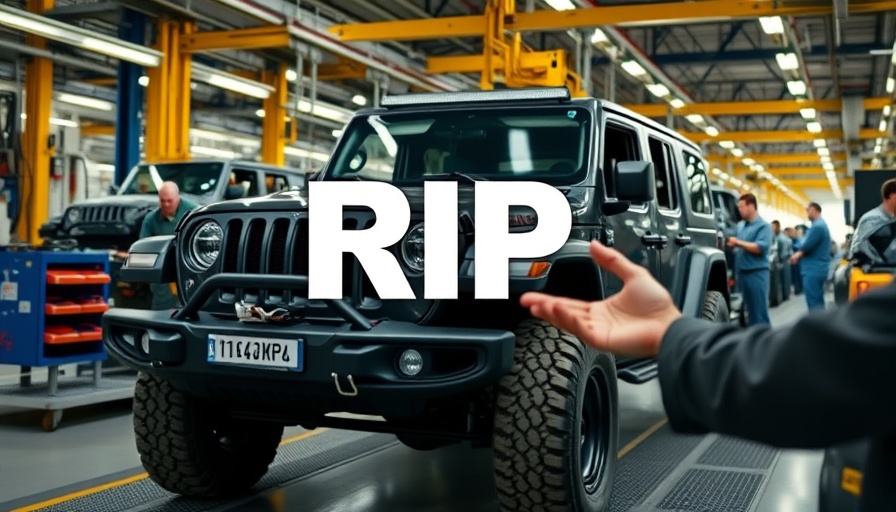
Stellantis Layoffs: A Wake-Up Call for Workers and Consumers
The recent shutdown of Stellantis’ Windsor assembly plant in Ontario has left thousands of workers reeling, igniting discussions about the long-term ramifications of tariffs on the automotive sector. The implications of these layoffs not only impact the employees but raise important questions for consumers about the reliability and future of auto manufacturers.
In 'Stellantis Just Shut Down Their Factories and Fired All Workers Due to Tariffs', the discussion dives into the significant impact of tariffs on automotive production and employment, prompting a closer look at these developments.
Understanding the Tariffs and Their Impact
Tariffs on automotive products have created a storm of uncertainty within the industry. As highlighted in the recent video analysis, Stellantis seems to be using these tariffs as a convenient excuse to streamline operations, which raises alarms about the future of manufacturing in North America. While companies often pledge to prioritize U.S. manufacturing jobs, actions such as factory closures suggest otherwise.
The Effect of Tariffs on Consumer Choices
Consumers play a crucial role in this scenario. If purchasing decisions shift, as suggested by the video, companies that don’t meet market demands could face grave consequences. The sentiment that “if you don’t buy their cars, they can’t build them” resonates deeply; consumers have the power to influence manufacturing priorities through their purchasing habits.
Missed Opportunities in Electric Vehicle Development
The layoffs at GM’s Factory Zero in Detroit underscore another pressing issue: the electric vehicle (EV) market. With consumers showing little interest in pricier, bulky electric models like the Hummer and Silverado EV, manufacturers are facing inventory challenges. While these vehicles are produced in the U.S., the video suggests a strong consumer preference for convenience—not just price. If companies do not adapt to meet consumer needs, the layoffs might not just be temporary as hoped.
The Bigger Picture: Trade Imbalances and Market Dynamics
The discussion also extends to international trade dynamics, particularly the ongoing trade war with China. U.S. imports from China significantly exceed exports, leading to potential fallout for U.S. manufacturers. As tariffs increase, so does the risk that products will become unsellable, further exacerbating the industry’s challenges.
Consumer Trust: Building or Eroding?
Trust in automotive manufacturers is at stake amid all these changes. Many consumers have experienced disappointment with certain brands, such as Ford, which have faced criticism for their product quality. If automakers wish to survive these turbulent times, they must regain consumer trust by delivering high-quality, reliable vehicles at reasonable prices.
Conclusion
As this landscape continues to evolve, consumers must remain vigilant and informed. By understanding the impacts of tariffs, production decisions, and the shifting market dynamics, individuals can make better choices about their automotive purchases. If you're considering a new vehicle, remember that your choices today can shape the industry's direction for tomorrow.
Stay informed, question the status quo, and always make educated decisions when it comes to your financing—your choices matter.
 Add Row
Add Row  Add
Add 




Write A Comment